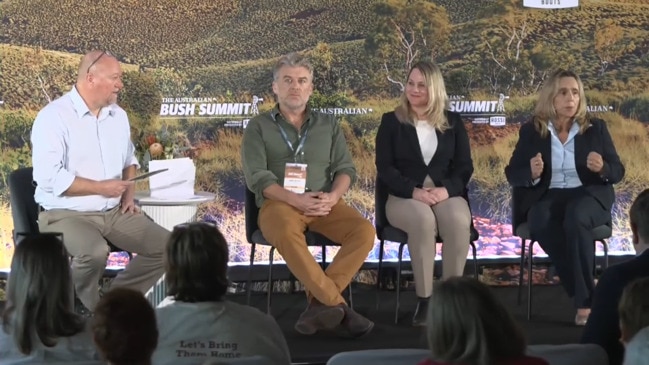Peak aluminium body wants bauxite, alumina, and aluminium on Australia’s critical minerals list
Australia’s aluminium sector says the country’s competitive advantage is being undermined by unclear regulatory frameworks which weaken investment.

Business
Don't miss out on the headlines from Business. Followed categories will be added to My News.
The Australian Aluminium Council says Australia’s competitive position is being undermined by inconsistent and unclear regulatory frameworks.
And it wants the federal government to include bauxite, alumina and aluminium on the nation’s critical minerals list.
The body, which represents miners, refiners and smelters, says the inclusion will send a clear signal to trading partners that the country is committed to safeguarding its role in the global supply required for transition to a low-carbon world.
It comes amid a challenging time for the sector which has seen three refineries impaired in the past 18 months including Alcoa’s Kwinana refinery, and another curtailed as South32 said that the long-term viability of its Worsley operations was in doubt.
AAC chief executive Marghanita Johnson said the inclusion of aluminium on the strategic minerals list acknowledges the metal’s importance in the transition to net zero but does not come with much needed policy support and was instead a “watch list” for minerals not considered vulnerable.
“We do not want aluminium to become the new nickel which until early this year was also considered a strategic mineral. The government’s decision to move it to the critical minerals list in February was too little too late,” she said.
Ms Johnson said the future of Australia’s upstream aluminium sector now rests in the hands of policymakers.
“They (government) face a critical decision: to chart a path toward prosperity and sustainable growth or to neglect their responsibilities, allowing these industries to decline further, as their competitive advantages gradually diminish.”
The federal government’s critical minerals strategy offers support including financial and potential fast-tracking project approvals for resources that are deemed essential to modern technologies, vulnerable to supply chain disruption and can play a role in the transition to net zero.
It comes as the AAC launched a new report highlighting the need for a streamlined regulatory process to unlock the potential of Australia’s bauxite resources.
Global aluminium demand growth is forecast to remain strong for at least the next two decades, but the industry says the existing policy framework has been haphazard in its evolution and inconsistent in its application, resulting in the gradual erosion of international competitiveness.
Ms Johnson said cost increases expected over the next five years would come from delays in environmental approvals, limiting access to bauxite for alumina refineries.
While Indonesian refineries are set to expand capacity over the next five years, Australia faces mounting challenges, including rising capital, labour and energy costs, compounded by lengthy regulatory approvals.
“Indonesia can approve and build an integrated bauxite mine and alumina refinery faster than Australia,” Ms Johnson said.
A constructive environmental approval and resources policy framework, one characterised by discrete components, agreed time frames and clear integration with other major policy goals, would reduce capital and operating costs, as well as reducing industry carbon emissions.
Ms Johnson said a constructive framework would provide the necessary assurances for operators to invest for the long-term.
“A destructive (or directionless) policy framework, insufficiently attuned to the financial impact on existing operations, would result in major cost escalations, reduced margins for bauxite exporters and unsustainably high refining costs,” she said.
Under this scenario, bauxite mines could be forced to close, triggering a knock-on closure of Australia’s alumina refining sector, given the technical and economic barriers associated with processing imported bauxite.
Alumina refining capacity displaced from Australia would likely migrate to lower-cost jurisdictions such as Indonesia and Guinea. It could also increase global emissions in the sector given Australia emits half the global average.
More Coverage
Originally published as Peak aluminium body wants bauxite, alumina, and aluminium on Australia’s critical minerals list





